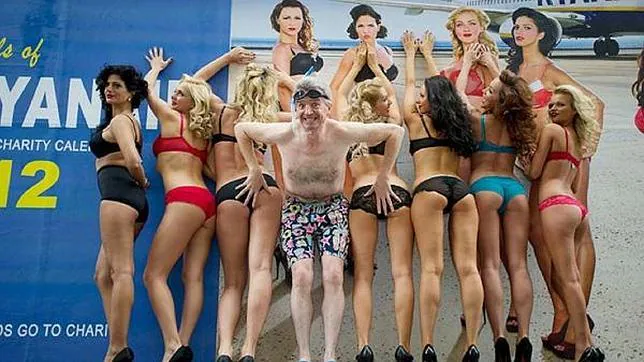
Michael O’Leary Urges Chancellor to Oppose ‘Silly’ End to Jet Fuel Tax Exemption Ryanair CEO Michael O’Leary has urged the UK Chancellor of the Exchequer to oppose the proposed end to the jet fuel tax exemption, labelling the move as “silly.” In a letter to Philip Hammond, O’Leary argued that the exemption, which currently allows airlines to avoid paying taxes on jet fuel, has been a major factor in the growth of the UK aviation industry. He claimed that abolishing it would have a negative impact on the country’s economy. O’Leary pointed out that the exemption has enabled airlines to offer low-cost flights, which have made air travel more affordable for consumers. He argued that removing it would lead to higher ticket prices and discourage people from flying, ultimately harming the tourism and business sectors. The Ryanair chief also criticized the government’s claim that the exemption is harmful to the environment. He pointed to the fact that the aviation industry has already taken significant steps to reduce its emissions, including investing in fuel-efficient aircraft and promoting sustainable practices. O’Leary urged the Chancellor to reconsider the proposal and instead focus on measures that genuinely address climate change. He suggested that the government could invest in research and development of low-carbon technologies for aviation. The letter comes as the government prepares to announce its budget on March 11. O’Leary’s intervention is a sign of the intense opposition that the airline industry is mounting against the proposed end to the jet fuel tax exemption. Environmental groups, however, have welcomed the move, arguing that it is a necessary step to reduce emissions and promote sustainable transportation. They contend that the aviation industry has not done enough to tackle its environmental impact and that the tax exemption has subsidized its growth. The debate over the jet fuel tax exemption is expected to continue in the lead-up to the budget announcement. It remains to be seen whether the Chancellor will heed O’Leary’s call or bow to pressure from environmental groups.This HTML code appears to be related to an article about aviation and the Irish economy. Let’s break down the different parts of the code:This HTML code appears to be related to an article about aviation and the Irish economy. Let’s break down the different parts of the code: 1. `
`: This tag represents the start of a paragraph. There are multiple instances of `
` tags in the code, indicating that there are multiple paragraphs of text. 2. “: This is a “ element that defines the main body of the article. It contains all the content that makes up the article, including text, images, and other elements. 3. “: This is another “ element that represents the top section of the article. It contains the main heading and introductory text. 4. `
Aviation`: This is the main heading of the article. It is wrapped within a `
` tag, which is not the conventional way to define a heading. 5. `
`: This is a paragraph that contains the intro text for the article. It provides a brief summary of the main points. 6. “: This code defines an image and its caption. It includes attributes like the image source, width, height, and caption text. 7. “: This is a “ tag that loads the Facebook JavaScript SDK. It allows you to track user interactions with the website. 8. `fbq(‘init’, ‘…);`: This JavaScript code initializes the Facebook tracking for the website. It specifies the Facebook Pixel ID. 9. `fbq(‘track’, ‘…);`: This code tracks a page view event using the Facebook Pixel. It sends information about the page being viewed to Facebook for analytics and advertising purposes. 10. `var bart_categories, bart_tag_names, bart_authors, articleDate;`: These are JavaScript variables that are declared but not defined in the provided code. Overall, this HTML code appears to be part of a web page that includes an article about aviation, specifically discussing the Irish economy’s dependence on the aviation industry and its concerns over fuel taxes.Michael O’Leary, the CEO of Ryanair, has called on the Chancellor of the Exchequer to reject a proposed end to the tax exemption on jet fuel. The move, which is being considered by the UK government, would see airlines pay tax on the fuel they use, a cost that would likely be passed on to passengers in the form of higher fares. O’Leary has described the proposal as “silly” and has warned that it could lead to a “dramatic reduction” in air travel. He also argues that it would disproportionately affect low-cost airlines, which rely on low fares to attract customers. The tax exemption on jet fuel has been in place for decades and is designed to support the aviation industry. It is estimated that ending the exemption would raise £1 billion for the government, but O’Leary has argued that this would be more than offset by the loss of tax revenue from reduced air travel. The Chancellor of the Exchequer, Rishi Sunak, has said that he will “consider all options” on the issue of jet fuel tax. However, he has also said that he is “committed to supporting the aviation industry” and that any changes to the tax system would be made “in a way that is fair and supportive of growth.” The proposed end to the jet fuel tax exemption is part of a wider review of the UK’s tax system that is being conducted by the Treasury. The review is expected to be completed in the spring of 2023.